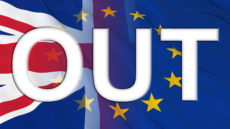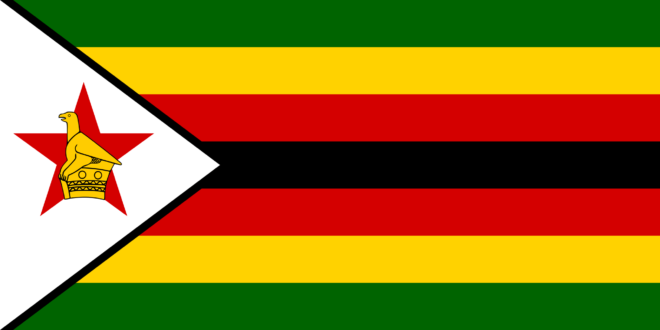[See Part 1 Here]
Besides handing down the vote to Leave the EU, the June 23rd Brexit referendum also demonstrated that the UK is a house divided. The vote itself was fairly narrow: 52% vs. 48%. Northern Ireland (NI), Scotland and London had clear majorities for Remain, but much of the rest of England were strongly for Leave. There was also a notable generational gap, with younger people broadly in favor of Remain and older people broadly in favor of Leave.
It is interesting too that the Leave vote was strong in much of the North of England, which is a traditional Labour heartland.[1] The strength of the Leave vote in such staunch Labour areas illustrates how much senior Labourites were out of touch with their own people. The same can be said to a lesser extent about many senior Conservatives too: they too misjudged the strength of anti-EU sentiment in their own ranks. Political leaders were so busy lecturing their supporters that they failed to listen to them. This theme of an out-of-touch political elite will, I believe, be the key factor across the continent as movements gather pace to follow the Brits and the EU now unravels. One thing though is for sure: it will not be pleasant.
The financial fallout was shattering. The day after the referendum, sterling fell by over 10%, the FTSE by 7.2%, the DAX by 7%, the CAC by 10% and the Nikkei 225 by 7.9%. It was reported that the 400 richest investors (who had all bet on Remain, including George Soros) lost over $127 billion, and that total market losses were almost $4 trillion. European bank stocks were positively hammered: they fell by over 15%. The VIX, the Chicago Board Options Exchange Volatility Index—usually known as the “Fear Index”—jumped by 49%. The next trading day, Monday 27 June, the S&P rating agency downgraded the UK’s credit rating by two notches from “AAA” to “AA”.[2]
The political fallout was also spectacular. On the Friday immediately after the vote, the Prime Minister announced that he would be stepping down, thereby triggering a leadership election campaign that will paralyze the government until a new leader is elected. That same day, Sinn Fein announced that the pro-Remain result in Northern Ireland meant that Ireland now had to be reunited. For her part, Scottish First Minister Nicola Sturgeon was demanding another Scottish independence referendum so that Scotland could stay in the EU and was darkly threatening to veto the EU referendum result herself. The pixies were out in full play. There were calls for a new referendum and within a week, more than four million people had signed an online petition for one. There were calls for MPs—75% of whom had campaigned for Remain—to refuse to ratify the referendum result, and there were calls for a general election if they failed to do so. Brexiteers were being attacked in the media and there were angry demonstrations—many of the young in particular feeling that the result would rob them of their rights, e.g., as regards their working rights[3] and their pensions,[4] but who had also been wound up by Project Fear, i.e., the unscrupulous campaign to persuade them that they would have no future worth having under Leave. The Labour Party went into meltdown as the daggers came out for Labour Leader Jeremy Corbyn, who was accused of having lost the referendum by not having campaigned enthusiastically enough for Remain.[5] Within days, most of his shadow cabinet had resigned, his Parliamentary party had passed an unprecedented 172 to 40 vote of no confidence in his leadership and a formal campaign was announced to replace him as leader.[6] UKIP also fell apart: its leader Nigel Farage has just resigned and the obvious replacements—such as UKIP MP Douglas Carswell—have ruled themselves out as leadership candidates. There had been no contingency planning for a Leave vote because no-one in authority in the UK or the EU had ever thought it would happen, and there was pressure from Brussels to start formal separation talks immediately, which would then set in motion a two-year deadline for which no-one was remotely ready. The political class is in disarray.
 As the school year was winding down, results from the most recent National Assessment of Educational Progress (NAEP), also known as the Nation’s Report Card, showed flat reading performance, and a decline in math performance among high school seniors compared to their pre-Common Core predecessors. So much for college-readiness.
As the school year was winding down, results from the most recent National Assessment of Educational Progress (NAEP), also known as the Nation’s Report Card, showed flat reading performance, and a decline in math performance among high school seniors compared to their pre-Common Core predecessors. So much for college-readiness. Death, taxes, and rising college prices – these are among life’s few certainties. A new study helps shed light on the latter.
Death, taxes, and rising college prices – these are among life’s few certainties. A new study helps shed light on the latter. Voters in today’s slimmed-down United Kingdom (comprised mainly of England, Northern Ireland, Scotland and Wales) approved on June 23, by a margin of 52 percent to 48 percent, a referendum obligating London to leave the European Union. David Cameron, the nation’s prime minister and a staunch supporter of “remain” in the prequel to Election Day, has resigned from office, triggering an upheaval within his Conservative Party over selecting his successor.
Voters in today’s slimmed-down United Kingdom (comprised mainly of England, Northern Ireland, Scotland and Wales) approved on June 23, by a margin of 52 percent to 48 percent, a referendum obligating London to leave the European Union. David Cameron, the nation’s prime minister and a staunch supporter of “remain” in the prequel to Election Day, has resigned from office, triggering an upheaval within his Conservative Party over selecting his successor. An advocate of consumer-driven health care, who makes the case that individuals should control most of our health spending directly, will not get very far before hearing the rebuttal: “When you have a heart attack or get hit by a bus, you won’t be in any condition to negotiate which hospital you go to.”
An advocate of consumer-driven health care, who makes the case that individuals should control most of our health spending directly, will not get very far before hearing the rebuttal: “When you have a heart attack or get hit by a bus, you won’t be in any condition to negotiate which hospital you go to.” Independence Day in the United States is a good time to reflect on independence movements elsewhere. Before there was Zimbabwe, there was Rhodesia, where a white minority government oppressed blacks and “colored” (mixed race) people using force and apartheid-style policies. In the 1970’s, the last decade of the country’s War of Independence, rock music blasted from the black townships in Rhodesia, and one band, Wells Fargo, became a leading voice for music and independence in the face of an oppressive regime. Here’s the forgotten story of the band’s courage, perseverance, and entrepreneurship.
Independence Day in the United States is a good time to reflect on independence movements elsewhere. Before there was Zimbabwe, there was Rhodesia, where a white minority government oppressed blacks and “colored” (mixed race) people using force and apartheid-style policies. In the 1970’s, the last decade of the country’s War of Independence, rock music blasted from the black townships in Rhodesia, and one band, Wells Fargo, became a leading voice for music and independence in the face of an oppressive regime. Here’s the forgotten story of the band’s courage, perseverance, and entrepreneurship. Boeing, the giant aerospace concern, has been cutting out the middle-man for health benefits:
Boeing, the giant aerospace concern, has been cutting out the middle-man for health benefits: Spain, the Eurozone’s fourth largest economy, has been without a real government since October, when the campaign for a general election kicked off. After an inconclusive result, the country was left in political limbo. That status will change soon due to
Spain, the Eurozone’s fourth largest economy, has been without a real government since October, when the campaign for a general election kicked off. After an inconclusive result, the country was left in political limbo. That status will change soon due to 





